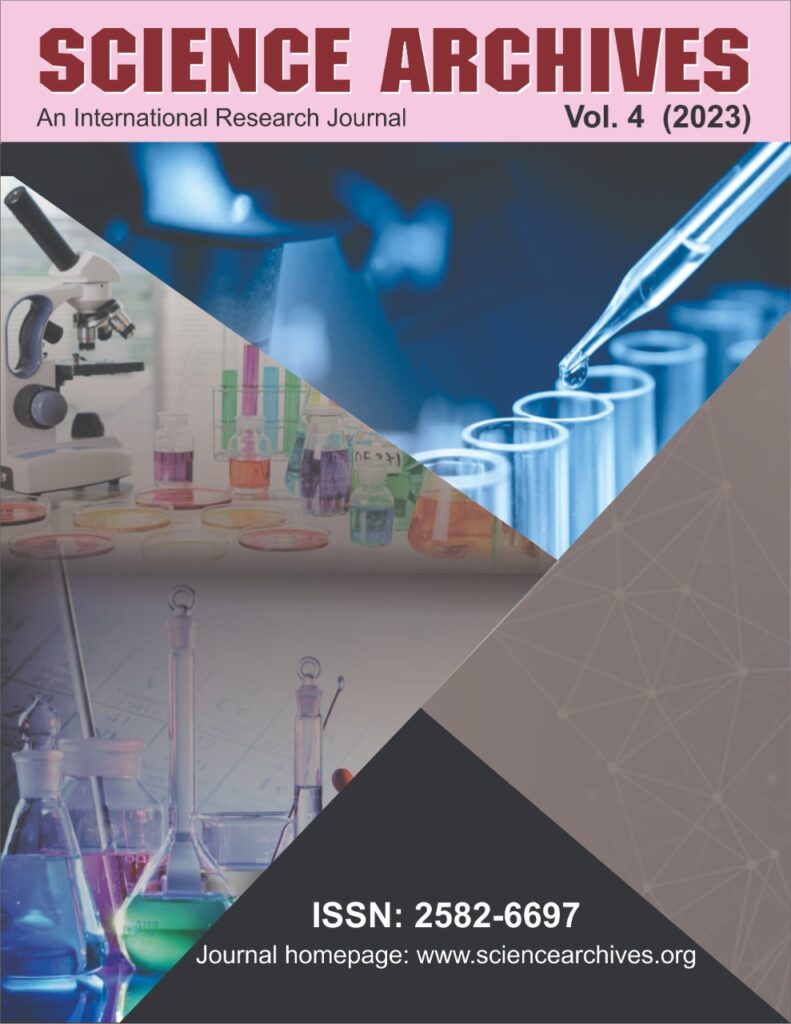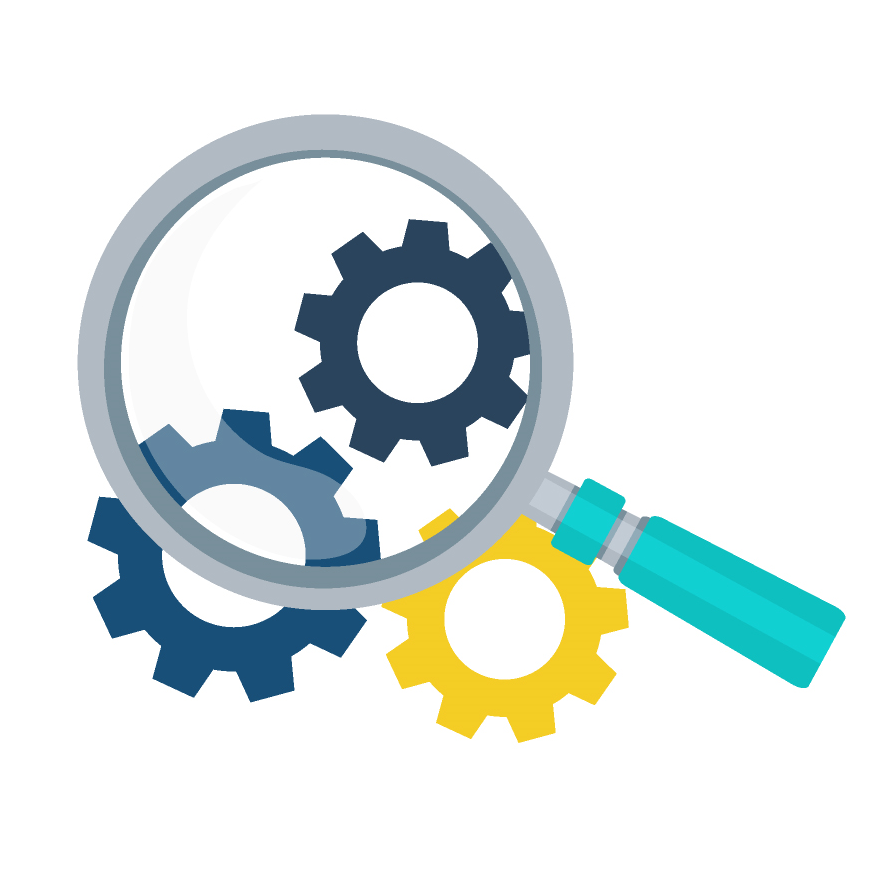Detection of bacterial infection of the eye chalazion in Mosul City
Abeer Mahmood.AL-Sabaawy¹
Science Archives, Vol. 3(4), 240-246
Crossref DOI: https://doi.org/10.47587/SA.2022.3401


Science Archives (ISSN: 2582-6697) is a multidisciplinary, interdisciplinary, cross-disciplinary, and trans-disciplinary peer-reviewed research journal of Science with reputable academics and experts as members of its Editorial Board. The International Journal aims to publish all the latest and outstanding research articles. Science Archives (Licensed under a CC BY 4.0) is designed for the prompt publication of peer-reviewed articles in all areas of the subject. The journal articles will be accessed freely online.
All manuscripts will be sent for blind peer review. Contributions must be original, not previously or simultaneously published elsewhere, and are critically reviewed before they are published.

Focus and Scope
Plant Science, Environmental Science, Life Sciences, Medical Sciences, Agricultural Science, Physics, Chemistry Biology, Food Science, Aquaculture Science, Material Science, Earth and Planetary Science, Natural and Physical Sciences, Oceanography and Marine Science, Health Science, Veterinary Science and Pharmaceutical Sciences, Computer Science, Mathematical Sciences and other multidisciplinary, interdisciplinary branches of Science

Publication Frequency
4 issues/year: March | June | September | December

Peer Review Policy
Double-Blind: The identity of authors is not known to the reviewers and vice-versa. Details Credits– This peer review procedure is based on https://www.elsevier.com/en-gb/reviewers/what-is-peer-review

Plagiarism Policy
Journal is a registered member of iThenticate Turnitin (most trusted plagiarism checker by the world’s top researchers, publishers, and scholars. All manuscripts submitted to Science Archives are checked before publication.

Science Archives is a registered member of Crossref DOI ( 10.47587). All articles published by Science Archives are Given DOI which enables every published article to cite properly, thus provides an accurate number of citations and also increase the visibility of the published work. This will directly affect the impact factor of the author and journal as well.
This is a research platform that brings together information about funding, publications, policy, patents, and grants. Science Archives apply Dimensions Badge that provides a free and easy way to showcase the number of citations that your publications have received and supports complex data analysis to meet the needs of academic institutions, government organizations, research funders, and R&D departments.
The Crossmark button gives readers quick and easy access to the current status of an item of content, including any corrections, retractions, or updates to that record. CrossMark is a multi-publisher initiative to provide a standard way for readers to locate the current version of a piece of content. By applying the CrossMark logo Science Archives is committing to maintaining the content it publishes and to alerting readers to changes if and when they occur. Clicking on the CrossMark logo will tell you the current status of a document and may also give you additional publication record information about the document (http://dx.doi.org/10.47587/SA.crossmarkpolicy) amendments will only be made to the published version of the record in exceptional circumstances. Corrections will be made if there is a serious error in the report or if the error impairs understanding of the report (corrections will not be made for minor errors such as spelling mistakes). The corrected report will replace the original and a correction notice will be published explaining the amendments that have been made. We follow the COPE Guidelines for Retracting Articles.



Science Archives encourage authors to create ORCID ID. It allows authors to differentiate their research activities from others with similar names and affiliations. Empowers researchers to easily and uniquely associate a researcher’s identity to a wide range of research activities and objects such as publications, datasets, equipment, articles, media stories, curated exhibits, citations, experiments, patents, teaching notes, and notebooks. ORCID Provides records for individual scholars, improving the discoverability of researchers and their associated research activities and objects. Makes the research process and collaboration across borders, institutions, and disciplines easier because it removes the need to enter data over and over again. The data associated with a researcher can “move” with their identifier across organizations and national boundaries. Facilitates researcher interaction with multiple organizations, publishers, funders through a common identifier

Publons is the new environment where you can add your publications, track your citations, and manage your publication record. Journal encourages to sign in to Publons, Web of Science with one email address and password.


Scopus Author ID allows researchers to track their publications indexed in the Scopus citation database and build metric reports. Authors can use Scopus to follow the outputs of other researchers and institutions and identify potential collaborators. Scopus Author ID is automatically generated the first time one of your publications is indexed in Scopus.
Write with confidence: Use Grammarly for mistake-free writing. Scientific writing is rigorous and needs the usage of more formal words. Grammarly allows you to get tailored suggestions regarding the sentence structure and word suggestions

Journal encourages authors to use Mendeley desktop applications for reference. Mendeley is a free reference manager that can help you collect references, organize your citations, and create bibliographies. Mendeley is also an academic social network that enables you to share your research with others.
Abeer Mahmood.AL-Sabaawy¹
Science Archives, Vol. 3(4), 240-246
Crossref DOI: https://doi.org/10.47587/SA.2022.3401
Amira Ismail Al Badrani and Khansa Mohammed Younis 
Science Archives, Vol. 3(4), 247-254
Crossref DOI: https://doi.org/10.47587/SA.2022.3402
Diptendu Sarkar 
Science Archives, Vol. 3(4), 255-262.
Crossref DOI: https://doi.org/10.47587/SA.2022.3403
Khadija Ismail Mohammad 
Science Archives, Vol. 3(4), 263-267
Crossref DOI: https://doi.org/10.47587/SA.2022.3404
Diptendu Sarkar
Science Archives, Vol. 3(4), 268-279.
Crossref DOI: https://doi.org/10.47587/SA.2022.3405
Allyaa Natheer Alabase 
Science Archives, Vol. 3(4), 280-283
Crossref DOI: https://doi.org/10.47587/SA.2022.3406
Emaduldeen H. A.¹, Dhifaf J. Shamran²
Science Archives, Vol. 3(4), 284-288
Crossref DOI: https://doi.org/10.47587/SA.2022.3407
Diptendu Sarkar 
Science Archives, Vol. 3(4), 289-300
Crossref DOI: https://doi.org/10.47587/SA.2022.3408
Alaa Ismail Saood¹, Basim Hashim Abdullah², Emad Yousif Awad AL-Sultan²
¹Department of Diseases and poultry diseases, College of Veterinary Medicine, University of Basrah, Basrah, Iraq ¹Department of Biology, College of Education for Pure Science, University of Basrah, Basrah, Iraq
Science Archives, Vol. 3(4), 301-310
Crossref DOI: https://doi.org/10.47587/SA.2022.3409
Wedyan Yousif Al-tikrity and Thaer Mohamed Al-Mashhadani
Department of Biology, College of Science, University of Mosul, Iraq
Science Archives, Vol. 3(4), 311-318.
Crossref DOI: https://doi.org/10.47587/SA.2022.3410